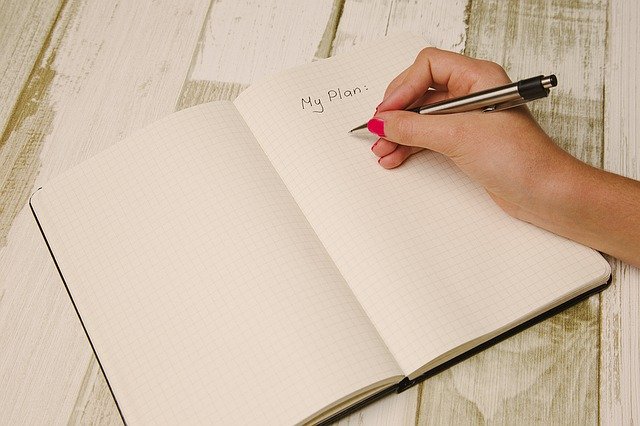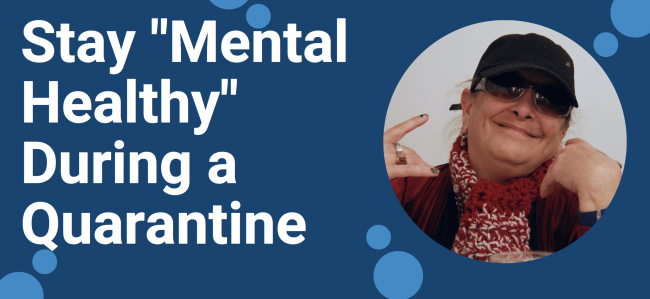New Jersey Governor Phil Murphy has issued a stay-at-home order and many New Jerseyans are struggling to deal with the isolation. There is a toll “social distancing” takes on our mental health. When you have a mental illness, that toll is multiplied. Luckily, there are steps you can take to manage your mental health until this pandemic ends and we can return to normal life.
Here are 7 tips for keeping “mental-healthy” during a quarantine:
1. Technology to Keep in Touch

There is no replacing face-to-face interactions with your family and friends. Still, a close second is using video call apps that can show you a friendly face when you’re feeling down. Keep in touch with iPhone’s built-in Facetime function or try some of the free apps listed here for Android or here for desktop.
2. Online/Phone Crisis Groups
It’s important to understand that if you are struggling with addiction, times like these can trigger us to use. We’ve listed a fantastic resource from our friends at Community In Crisis here. Read through their times and options and find the best way for you to connect to these recovery meetings.
3. Contact Your Case Manager
If you are enrolled in our case management program, you can contact your Easterseals case manager. Otherwise, you contact the NJ Mental Health Line for support by calling (877)294- HELP(4357) for emotional support, guidance, and mental health referrals
4. Set an “Unplug” Schedule

Social and news media are great ways to keep informed about current events, but too much time spent on these platforms can take their toll on our mental health. That’s why you should set boundaries for yourself and limit TV watching and social media detailing the day-to-day goings of of the pandemic. Instead, after you have checked the news, try to engage in “mindfulness activities.” These activities include drawing, journaling, coloring, reading, or listening to music. and/or a puzzle. YouTube also has plenty of free guided meditations to help center your mind and put you at ease.
4. Walk It Out
Though we are in a “stay-at-home” environment, that doesn’t mean you can’t take a short walk around your home to get out and about. Just be sure not engage in close contact social activities and keep a minimum of six feet away from others. Soaking in the sun does wonders for our state-of-mind and with Spring coming a bit early this year, you might not even need to bundle up!
5. Daily Routines
set a routine for yourself every day that includes exercise, phone or video contact with someone, meals, meditation, fun activities, and music. If you work from home, continue to get dressed as if you were going into the office. These routines can be comforting and keep you focused in a time when things feel out-of-place.
6. Turn Your “To-Do List” Into a “Done List!”

We all have a list of things we have been putting off for weeks, months, or even years. This is the time to tackle this list. Checking off these boxes and seeing the tasks get completed feels great. If you don’t have one, start one! There has never been a better time to clean the house or start that novel you’ve been waiting to write. Set a plan and stick to it so you can feel productive in these uncertain times.
7. Give and Recieve Kindness
Practice gratitude and kindness to yourself and others. Times like these give us the opportunity to put in perspective what matters. Send or make a gift for a family member. Call and check on your neighbors. Write a list of all the things you’re thankful for. Use this time of self-isolation to identify what matters to you. Here is an article from Psychology Today about ways to practice gratitude.
If you are having trouble finding identifying the good things in these tough times, reach out to your therapist or Easterseals case manager.
Have any other tips you want to share? Leave them in the comments below!
For updates on Easterseals New Jersey’s COVID-19 response, please visit our updates page or read our Special Needs Considerations for COVID-19 blog.
The Department of Human Services is also providing mental health resources during this time.
About the Author:

Unconditional positive regard is the basic acceptance and support of a person regardless of what the person says or does. My mission as a therapist is to assist clients in accepting and taking responsibility for themselves. To assist clients in building a healthy sense of self at any age in order to deal with life’s complicated in’s and out’s. I have provided effective coaching and counseling to those who struggle with anxiety, depression, mood disorders, family conflict, and crises. I have worked with families to assist in identifying the root of their challenge, identify positive problem-solving skills, coping skills, and increase positive communication. I have worked with clients that have experienced trauma in order to assist with the emotional processing of the event and work toward pre-trauma functioning.
Martha Wolfe, Licensed Marriage and Family Therapist


amazing article!!